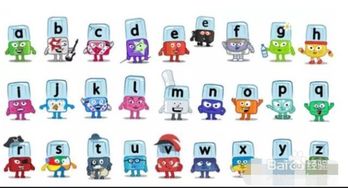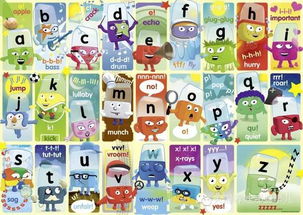Alphablocks: A Comprehensive Guide to ‘ar’ and ‘ur’ Phonics
Are you looking to enhance your child’s reading skills? Do you want to understand the intricacies of phonics better? Look no further! In this article, we will delve into the fascinating world of ‘ar’ and ‘ur’ phonics, as presented by the popular educational series, Alphablocks. We will explore their sounds, spelling patterns, and practical examples to help you and your child master these essential phonetic concepts.
Understanding the ‘ar’ Sound

The ‘ar’ sound is a fundamental phonetic pattern that is often found in many English words. It is produced by the combination of the vowel ‘a’ and the consonant ‘r’. Let’s take a closer look at how this sound is formed and some common spelling patterns associated with it.
| Word | Spelling Pattern | Example |
|---|---|---|
| car | ar | My dad drives a car. |
| star | ar | The stars are twinkling in the night sky. |
| bar | ar | Let’s go to the bar for a drink. |
As you can see from the table above, the ‘ar’ sound can be spelled in various ways, such as ‘ar’, ‘aer’, ‘a’, or ‘er’. It is important to familiarize yourself with these patterns to help your child recognize and pronounce words correctly.
Mastering the ‘ur’ Sound

The ‘ur’ sound is another crucial phonetic pattern that is widely used in English vocabulary. It is formed by the combination of the vowel ‘u’ and the consonant ‘r’. Let’s explore how this sound is produced and some common spelling patterns associated with it.
| Word | Spelling Pattern | Example |
|---|---|---|
| cup | ur | Can you pass me the cup, please? |
| turn | ur | He turned the corner and disappeared. |
| burn | ur | The sun was so hot that it burned my skin. |
Similar to the ‘ar’ sound, the ‘ur’ sound can also be spelled in different ways, such as ‘ur’, ‘er’, ‘or’, or ‘our’. It is essential to be aware of these variations to ensure your child’s reading and spelling skills are well-rounded.
Practical Tips for Teaching ‘ar’ and ‘ur’ Phonics

Now that you have a better understanding of the ‘ar’ and ‘ur’ phonics, here are some practical tips to help you teach these concepts to your child:
-
Use flashcards: Create flashcards with words that contain the ‘ar’ and ‘ur’ sounds. This will help your child recognize and remember the spelling patterns.
-
Read aloud: Practice reading aloud words with the ‘ar’ and ‘ur’ sounds. This will help your child become more familiar with the pronunciation and rhythm of these words.
-
Play word games: Engage your child in word games that focus on the ‘ar’ and ‘ur’ sounds. This can be done through word searches, puzzles, or even a simple game of “Simon Says” where you ask your child to say words with these sounds.
-
Use songs and rhymes: Incorporate songs and rhymes that feature words with the ‘ar’ and ‘ur’ sounds. This will make learning phonics more enjoyable and memorable for your child.
Conclusion
By understanding and mastering the ‘ar’ and ‘ur’ phonics, you





